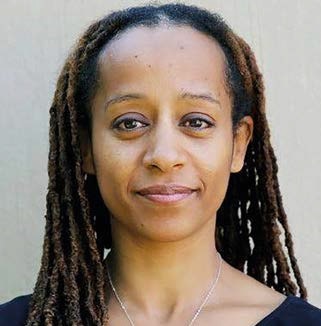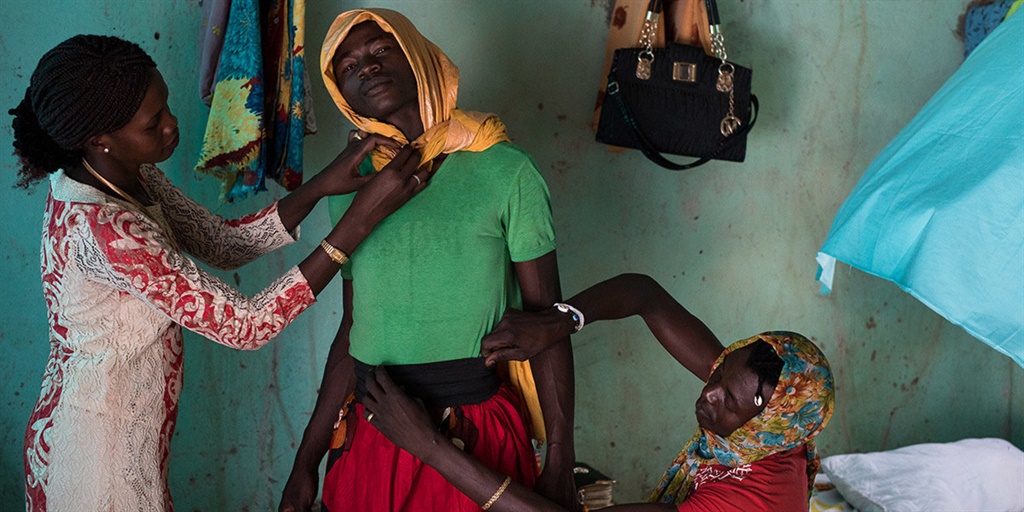
The great thing about the National Arts Festival is that audiences arrive mentally ready for cultural works that may be different to what they usually consume. This year’s film festival focuses on African films from the continent’s most refreshing voices. Grethe Kemp interviews curator Katarina Hedrén.
This year’s curated film section of the National Arts Festival (NAF) features the likes of Sudanese director Hajooj Kuka’s love-amid-war story Akasha; Egyptian coming-of-age tale Amal; the poetic and political Atrophy and The Fear of Fading by South African director Palesa Shongwe; Akin Omotoso’s Hotel Called Memory; as well as Eva Knopf’s meticulously researched story of a black German colonial soldier who was a popular extra and bit player in 1930s Nazi German cinema.
There’s also a bouquet of filmic installations by PhD candidate Kitso Lynn Lelliott, which deals with enslavement, subjugation and other forms of colonial violence. We asked curator Katarina Hedrén more about her selections.
What guided your film choices this year?
The films that I chose were from Africa or relating to Africa because that’s my first love.
The theme that I worked from was flux – that nothing is fixed and nothing is set, which is brilliant if you’re a programmer and you don’t really like to work with themes, but instead just want to put together a list of beautiful films.
I’m very much in love with uncertainty and exploration and playfulness – where you clearly feel that the explorative artistic journey is part of the final outcome.
It’s not that the exploration is something that they do in private and they show us the final perfect product. I like question marks (instead of declarations) and flow, and where there’s movement in the film.
We’ve been anticipating Hajooj Kuka’s new film since he made Beats of the Antanov. Tell me a bit about Akasha.
Akasha is a film that should be seen by many. It has this playfulness, it’s a student film and it’s set during the war in Sudan.
Kuka goes for the human aspect and that often highlights what is not being highlighted. You don’t necessarily think about someone in Sudan being full of life, love and joy.
But that’s what people are feeling at the same time that things are going on. I just loved the playfulness and the rhythm and the music in the film. He works with music visually. It’s a joyful, rounded, charming story.
What have your favourite films been this year?
I was obsessed with Jordan Peele’s Us. On the South African scene I’ve been impressed by Nosipho Dumisa’s Nommer 37. I also thought Matwetwe was amazing.
You didn’t like John Trengove’s Xhosa initiation film Inxeba. Can you tell us why?
I thought it was an Afroqueerphobic film.
I thought it was too bleak a story, too pessimistic a view. I don’t necessarily need happy stories, but there was no hope, no redemption, no mercy for the African queer man.
- Read more: What's the fuss about Inxeba?
Even if in reality everything is bleak, we still have dreams of love and imagination, and I thought the director was not able to imagine that.
So Grahamstown is now Makhanda and there’s perhaps a sense that the NAF is heading towards becoming the “decolonial” arts festival that it’s always strived to be. Is a decolonised programme something that’s important to you in your film curation?
Yes. I mean, we’re not automatically decolonial because we’re black.
Writers write because they feel that there’s something missing; musicians make the music that they can’t find anywhere else; and I curate the films that I wish were mainstream – that I wish were not the first or only of their kind.
I’m tired of films from a certain angle.
But I’m also wary of using words like “decolonial” so often that they stop meaning something.
But yes, I use a dismantling approach – not necessarily in defiance or protest because then you still have that “other” that you want to dismantle as the benchmark and I don’t.
I’m just not interested, other people can do that. I want to put my attention towards these beautiful films because these are beautiful voices that are true to our time.
Tell me more about the approach you want to dismantle?
I’ve seen a lot of films by white men and from the US and France in my life. I might not necessarily need another one.
Do you fear that your films might be too “obscure” for the audience?
I don’t think any film is too obscure. If I thought so it would mean I underestimate what people can handle, and I don’t think my capacities are greater than anyone else’s.
You don’t go to this festival to watch movies for the popcorn or to make out, but because there’s something more you’re looking for.
- The National Arts Festival takes place June 27 to July 7 in Makhanda. The full film festival programme can be found at nationalartsfestival.co.za




 Publications
Publications
 Partners
Partners









